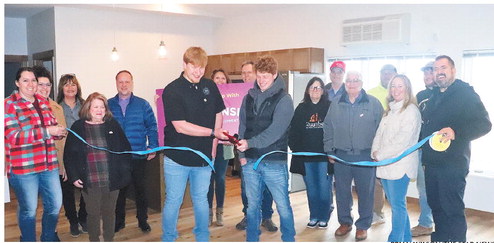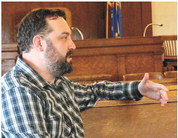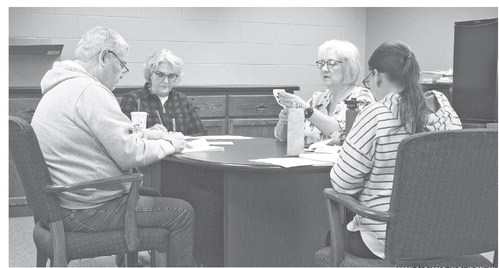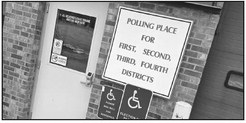Medford school board votes to outsource policy work
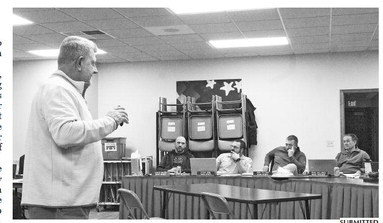

The Medford School District is going to buy policies from a service rather than build them on its own.
At Monday’s school board meeting, board members approved contracting with Neola, a Ohio-based firm that writes and maintains school policies for Wisconsin, Michigan, Indiana, Ohio, West Virginia and Florida. The cost of the service is about $18,000 for the first year followed by a yearly service agreement of about $3,800.
Steve Kolden of Neola presented to the board, noting that the service is used by 350 school districts in Wisconsin including those both large and small. The service provides policies for about 1,600 districts across all the states it serves. Kolden is the former superintendent of Colby School District, and noted there is a lot of value from an administration and board level to have a service such as Neola. Chief among those is that Neola monitors law changes at the state and national level to ensure policies are in compliance with those changes and has in-house legal counsel that reviews policies to ensure they are compliant.
Medford has historically maintained and updated its own policies. School district policies serve a similar role as municipal ordinances and codes and are the direction from the board to the administration on how the district should be run. Medford’s policy committee typically meets monthly for scheduled review of sections of the policy on a multiyear cycle. Even with the committee, the district frequently will send new policies for legal review which can be costly.
One of the challenges that the district faces is not knowing about a law or rule change which could impact existing policies. Kolden noted that with how quick people are to file lawsuits, there is security in knowing the policies have been reviewed.
“You don’t know what you don’t know,” said board member Jodi Nuernberger, who serves as chair of the district’s policy committee. She supported hiring the service to create the policies.
It was noted this would not eliminate the need for the policy committee. All policies would go through the multi-step approval process and be subject to changes and approval or disapproval by the board.
Board member Don Everhard was more skeptical, comparing it to hiring someone from outside the school district to prepare the school budget. “All of these things are nice, but are they necessary?” he asked.
He said the threat of lawsuits is a scare tactic and noted that even with going with a service like Neola, the district could be liable anyway.
“Are we trying to solve a problem that we don’t have?” asked board member John Zuleger.
District administrator Laura Lundy supported going with the service as an added layer of protection for the district.
On a roll call vote, the board voted 5-3 to contract with Neola beginning in July 2025. Board member Corey Dassow was absent. Everhard, board president Dave Fleegel, and Kurt Werner were opposed. Board members Nuernberger, Aemus Balsis, Steve Deml, Brian Hallgren and Zuleger voted in favor. Zuleger was hesitant in making his vote and after the vote said he went with it because he saw it as being a kind of insurance for the district.
Bullying
Bullying was back before school board members beginning with a public comment from district resident Duane Parkinson about ongoing concerns with his elementary-aged children.
Parkinson relayed the experiences his children have had and expressed frustration with what he referred to as an “evil process” that he says has done nothing to stop bullying behaviors. He called on board members and those seeking election to the board to remake the system.
“I'm here to tell you this board needs to destroy that process and rebuild around three pillars. One that restores community connection, inspires safe environment and academic excellence,” he said Later in the meeting, bullying was addressed by staff in each of the buildings reporting on discipline behaviors that have taken place this year. The school officials report on bullying to the board twice a year.
At the high school assistant principal Andy Guden reported that the absence of cell phones has improved behaviors across the board. There has been also a culture shift in the high school with an emphasis on integrity, compassion and resilience.
“We are moving the meter to make our culture better,” said principal Jill Lybert.
Middle school principal Jodi Butler noted that a positive in the middle school has been the increased use of restorative practices where the students are asked to reflect on how their behaviors impact others.
“The students are harder on themselves than I would be,” Butler said.
Elementary assistant principal Shelly Crank-Woller reported from the elementary school and noted that while there have been two bullying reports there are a number of positives including that students are having access to counseling.
“As much as we are doing we can do better,” Lundy said.
To that end, Lundy announced that the district would be creating a collaborative committee with the goal of helping parents feel informed and engaged and have students feel they belong and have positive relationships in the school.
A survey will be taken in the coming month and in March the parents, staff and students will be invited to be part of the committee and will review the survey data and create a goal with action steps.
Referendum project update
While physical construction work on the major additions and renovations to the Medford Area Senior High School won’t begin until the summer of 2026, there will be plenty of work taking place around the district over the next year.
Of the $23,665,000 amount that was approved by voters, the district is keeping $6.65 million of that in house with buildings and grounds director Adam Schwarz overseeing a number of projects including roofs and boiler replacements.
About $1,375,000 of work is expected to be completed in the summer of 2025 including replacing the pool boiler ($60,000), replacement of the gym floor at Stetsonville Elementary School ($74,000), resurfacing the gym floor at the Medford Area Middle School ($45,000), replacement of the MAMS scoreboard ($25,000) and bleachers ($165,000), a new roof at MAES ($595,000), partial roof replacement at MAMS ($123,000), replacing two boilers at MAES ($138,000) and replacing two boilers at MAMS ($150,000).
The remaining $16 million for the MASH Tech Ed building renovation and expansion, the classroom additions, replacement of the north cafeteria entrance at Medford Area Middle School, replacement of asbestos flooring in rooms at MASH and removal of the berms at the Medford Area Elementary School will be handled by general contractor Miron and architect Wendel.
Zuleger noted the district does not currently have an owners representative to look out for the district’s interests in reviewing contracts and work as the projects go on. He suggested it would be a worthwhile thing for the district to have. “We are assuming Miron and Wendel will do what we want them to do,” Zuleger said.
Part of this was concern over how some items such as signage were left out of the cost for the office addition at the high school that board members felt should have been part of the project. Deml said he was confident that Schwarz could serve in the role as the owners representative. “I think you are probably way more fussy than anyone we would hire,” Deml said, praising Schwarz’s attention to details.
In related action, board members formally approved setting the parameters for the sale of $13,665,000 in general obligation promissory notes. This is the initial borrowing for the referendum projects. This is a step in the process to borrow the money at a future point. While the money will not be needed for more than a year, by securing the money now the district can lock in a favorable interest rate. It will also give the district the ability to invest the money borrowed with the goal of making money on that investment above the cost of the interest on the debt.
Board members approved working with the government investment firm PMA and an intergovernmental cooperation agreement to participate in the Wisconsin Investments Series Cooperative which will seek to maximize the amount of interest income earned by the district while ensuring the district has the funds on hand needed to pay for projects as bills come due. PMA is paid by taking up to 25 basis points of the interest income earned on amount being managed.

